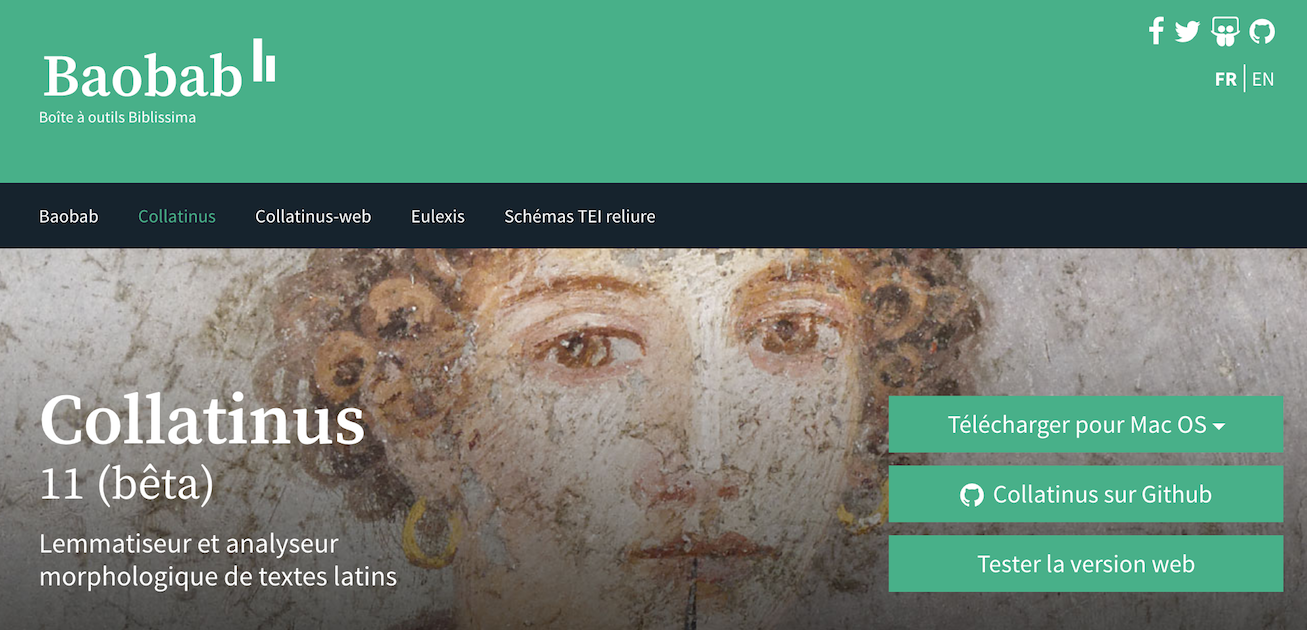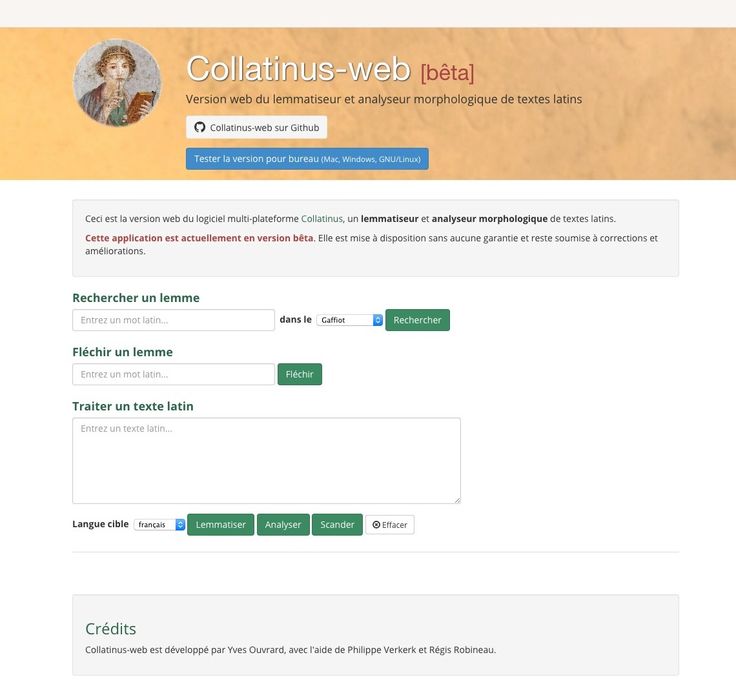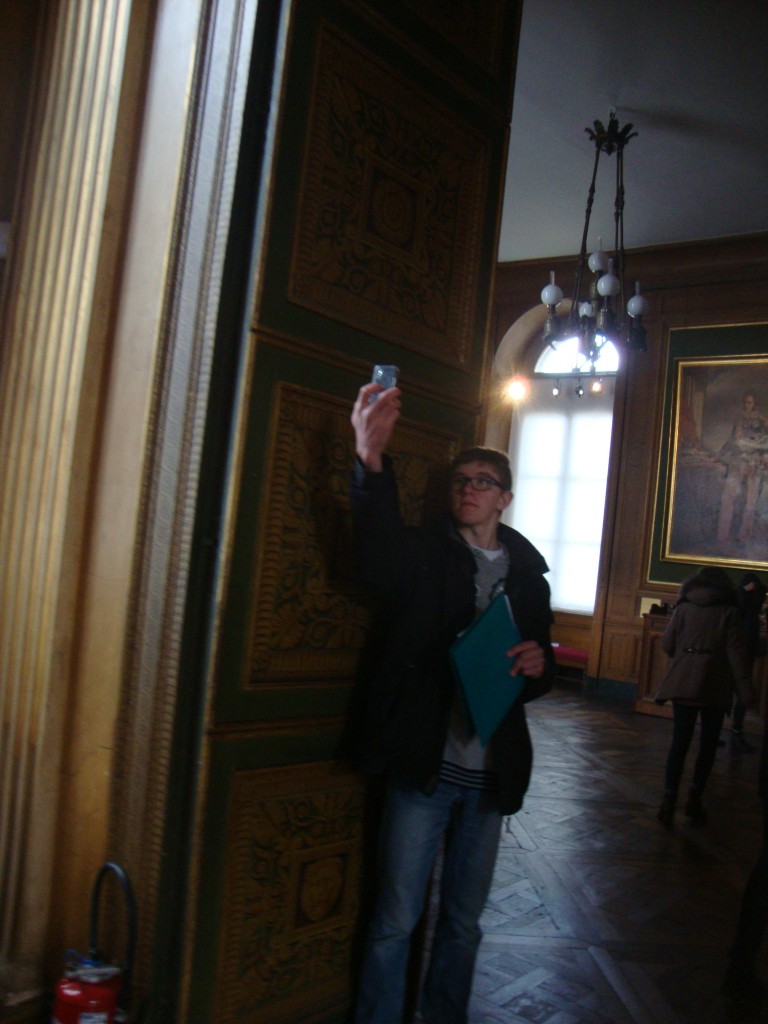

LicenceĬollatinus is developed and maintained by Yves Ouvrard and Philippe Verkerk. Of course, any developer can collect it also from the sources. The technical documentation collected with DoxygenĬan be found on the web site of Biblissima. The help pages of Collatinus are also available on the When scanning a text, Collatinus applies the usual rules of elision and hiatus. Starting from a lemma and its associated flexional endings, Collatinus is also capable of displaying the corresponding inflection tables, which Latin learners may find useful.įinally, when syllable quantities are known for a given lemma, Collatinus can scan the word and even the entire text. Adding lemmas with spelling variants (such as medieval spellings, for example) would make it possible to recognise all of their inflected forms as well.

The advantage to this approach is that Collatinus, with its 11,000 lemmas, is capable of recognising over half a million forms.

Unlike the majority of lemmatisers, which use lists of inflected forms, Collatinus uses a lexicon containing the lemmas and all the necessary information for their inflection.
#Collatinus traduction latin full
#Collatinus traduction latin for mac
Sources of version 10 are available on collatinus-10-src.Ĭollatinus is a free, open source and multi-OS software (Mac, Windows et Debian GNU/Linux), that is easy to install and use.ĭownload page on the Biblissima website: (binaries available for Mac OS, GNU/Linux and Windows).Ĭollatinus is both a lemmatiser and a morphological analyser for Latin texts: if a conjugated or declined form of a word is entered, it is capable of finding the correct root word to search for in the dictionary and then displaying its translation into another language, its different meanings, and any other information usually found in dictionaries. Sources of Collatinus software, the Latin lemmatizer, morphological analyzer and scansion tool. This application has been made available with no guarantee and may be subject to further corrections and improvements.The currently availlable version is the version 11.2, from the "Medieval" branch. For intensive use, we recommend the installation of the stand-alone version of Collatinus, which is available for Windows, MacOS and Linux/Debian. The lexical base now contains more than 80.000 lemmas.ĭue to lack of space on a web-page, the features of Collatinus 11 are not all available. Its lexical database has been extended with the systematic treatment of the digital dictionaries (Gaffiot 2016, Jeanneau 2017, Lewis & Short 1879 and Georges 1913).

This online version is based on version 11.2 of Collatinus. Si desean participar en esta revisión, pónganse en contacto con nosotros para que podamos ponerles en contacto con los equipos correspondientes. Se trata de verificar las traducciones de los términos latinos en las cuatro lenguas oficiales de España: castellano, catalán, euskara y gallego. (ES) Una amplia campaña de verificación de traducciones se ha iniciado por parte de nuestros amigos españoles. If you would like to participate, contact us to put you in touch with the relevant teams. The goal is to review translations of Latin lemmas in the four official languages of Spain: Castilian, Catalan, Euskara and Galician. (EN) An extensive campaign to review translations has been launched by our Spanish colleagues. Launch of a campaign to review translations of the languages of Spain: Two languages added to the Collatinus registry: Dutch and Euskara. This project aims at providing TEI-compliant XML and other format (HTML etc) files of Gaffiot, Dictionnaire Latin Franais (1934).


 0 kommentar(er)
0 kommentar(er)
